Michael Alexander meets former Channel 4 Asia correspondent Ian Williams whose new book is warning about the rise of China, its global ambitions and why it’s time for the West to ‘wake up’.
China has been making global headlines recently whether that be its increasingly hostile actions towards Taiwan, or allegations of genocide against the Uyghur population in the north-western region of Xinjiang.
But a former China correspondent has warned that the West must open its eyes to the reality of China’s bid for global domination which threatens the Arctic, cyberspace and even our own borders here in Scotland.
‘Dangerous new turn’
In his new book The Fire of the Dragon: China’s New Cold War, former Channel 4 Asia Correspondent Ian Williams warns that China’s global ambitions have taken a dangerous new turn.
Bullying and intimidation have replaced diplomacy.
Trade and investment, even big-spending tourists and students, have been “weaponised”.
Beijing has strengthened its alliance with Vladimir Putin, supporting Russia’s aggression in Ukraine.
Leaders in the West say they don’t want a cold war with China.
But Mr Williams says Beijing is already waging a more complex, broader and more dangerous cold war than the old one with the Soviet Union, and it’s intensifying.
Funding from China
One of the ways in which this cold war affects Scotland in particular, he says, is through the reliance Scottish universities have developed on funding from China.
Mr Williams warns that students from China paid a combined £245 million in fees at Glasgow, Edinburgh, Strathclyde and Heriot-Watt universities alone last year.
That represents almost a third of the total fee income of £790 million.
Mr Williams says while his concerns are not aimed at Chinese students personally, if relations were to break down between China and the UK as has occurred with Russia in the past year, the results would be catastrophic for Scotland’s economy, he warns.
Further, there are a number of student organisations in Scotland which claim to promote Chinese culture on campuses, but which are entirely funded by the Chinese government and have been accused of promoting Communist Party propaganda and stifling free speech on issues which are sensitive to it.
‘Tone deaf’
“As Scottish universities prepare for the new academic year, there is no sign they are heeding increasingly stark warnings about their dangerous dependence on Chinese money or their ties to organisations linked to the Chinese Communist Party,” he warns.
“Chinese students make up the largest group of international students studying at Scottish universities by a large margin.
“In the event of a possible catastrophic breakdown in relations with China, the economic impact on Scotland due to the loss of tuition from Chinese students would be even more devastating than what we are currently seeing with the collapse of educational ties with Russia.
“Scottish universities appear to be tone deaf to the growing risks over-dependence on China, and increasingly vulnerable to the impact of deteriorating relations with Beijing. It’s time to wake up!”
Award-winning career
Mr Williams, who won an Emmy and BAFTA awards for his discovery and reporting on the Serb detention camps during the war in Bosnia, spent 25 years as a journalist in and around China – a country he finds “compelling”.
He worked for the Sunday Times in the late 1980s and joined Channel Four News in 1989.
He was foreign correspondent for Channel 4 News, based in Moscow from 1992–1995 and then Asia correspondent based in Hong Kong then Bangkok from 1995 to 2006.
He joined the American network NBC News as Asia correspondent (2006–2015), when he was based in Bangkok and Beijing.
When he left NBC News, he wrote a novel called Beijing Smog which was a satire on corruption and repression in China, and spotlighted the West’s “incredible naivety” about China and hypocrisy about our business dealings with it.
This was followed up with a cyber thriller called Zero Days about a year later.
Mr Williams’ interest in Chinese cyber espionage led him do a masters degree in cyber security when he returned to the UK.
However, he ended up with so much research material from his novels that he thought there must be a non-fiction book in it too.
In 2021, Every Breath You Take: China’s New Tyranny was published to critical acclaim and deals with the extraordinary rise of the Chinese surveillance state. He wrote most of that during lockdown.
His latest book, The Fire of the Dragon, builds on that and looks at China internationally.
It examines China and the world, the way China behaves, its increased aggression and why, its world outlook and of course the remarkable range of activities through which China asserts itself globally ranging from informal and formal influence operations to cyber spying.
Provocative sub title
“I deliberately chose a provocative sub title ‘China’s New Cold War’ because western leaders seem to be tying themselves up in knots to find a way to describe the new relationship with China – systemic rivalry etc – but avoiding the Cold War analogy,” he says.
“Whereas when you look at it closely, if you accept the Cold War is a war by other means, it encompasses multiple ways of asserting your influence and coercion and pressure short of a hot war. China is a master of war by other means.”
Experiences in China
During his years in China, Mr Williams says “some things changed profoundly” while “some things depressingly remain the same”.
One area of significance was the emergence of the internet and the promise it had to “hold the Chinese Communist Party to account”.
However, in just a few short years China took control and shut down the internet and social media freedoms.
It then went beyond that and “weaponised it” as a means of social and political control.
Mr Williams says that here in the West, we tend to get “glimpses” of China on the news whether that be the crackdown in Xinjiang, the massacre and incarceration of 1.5 million Uyghurs, the turning of Hong Kong into a “police state”, repression at home or the recent “bullying” of Australia.
But he’s concerned that “no one really threads it all together”.
‘Muddled and contradictory’
Far from being isolated incidents, and far from China’s rise being “benign”, he says these incidents are part of a coherent strategy through which China’s autocratic state is increasingly aggressively asserting itself internationally.
He says leaders in British universities, business and politics “really have very little idea of what we are dealing with” and accuses recent UK government leadership of having a “very muddled and contradictory” policy on China.
“China has made no secret that they would like to displace the United States as the preeminent international power, and they want to mould the world in their image,” says Mr Williams.
“One of the chapters in the book is called Peak China where I question whether China is now facing so many issues that it is so over extended and to some extent quite unloved internationally – because the world is becoming more wary – that we may well have seen ‘Peak China’.
“But post-Peak China might not necessarily be ‘less dangerous China’ because arguably a system in decline is more dangerous than a system that’s growing.
“They’ve made no secret of the fact that the 100 year march as it’s been called to 2049 – the centenary of the Communist Party’s seizure of power – is when they would like both China to become the preeminent global power and of course to recover as they would describe it Taiwan.
“In that sense they’ve been quite open about what their goal is – the Chinese dream of Xi Jinping – the restoration of China as a great power.
“But what’s quite worrying is there’s nothing ‘Communist’ anymore about the Communist Party.
“He’s turned it really into quite a rabid ethnic nationalist party under-pinned by grievance and victimhood and echoes of 1930s Germany, and that’s quite a dangerous philosophy.
“I don’t think that a lot of people in the West kind of realise what they are dealing with or fully appreciate.
“I think that business is particularly guilty on this front. They still spout about the importance of engagement, but that’s largely self-serving.
“I think universities as well. I think it’s been driven by a combination of naivety and greed.
“Ever since David Cameron raised a pint with Xi Jinping a few years ago and said Britain would be China’s best friend in the West, it was like a starting gun for everyone to get their nose in the trough – no questions asked.
“But it’s quite incredible really what’s happened along the way.
“Due diligence has consisted of counting the number of zeros on a cheque.”
Over dependence
He adds: “We’ve seen the dangers of over dependence on Russia whether that’s hydrocarbons in Europe or whether it’s oligarch money in London or elsewhere.
“The oligarch money kept coming, we avoided arming Ukraine because we were afraid it might upset Russia, we avoided doing things that might upset Putin. But look where it got us?
“China has made no secret that it’s an autocratic state with aggressive global expansive ambitions.
“And yet the dependencies we have on China far exceed those of Russia.
“The shock to the system if there is a breach of relations would be vastly bigger than what we’ve seen with Russia.
“And yet there’s no preparations for that!”
Where to find the book
The Fire of the Dragon: China’s New Cold War is published by Birlinn and is available now in paperback for £16.99.
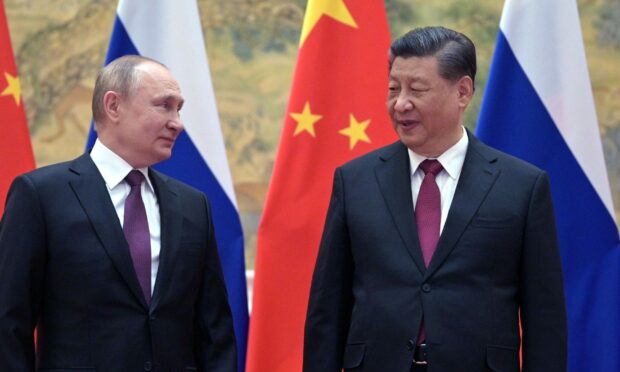

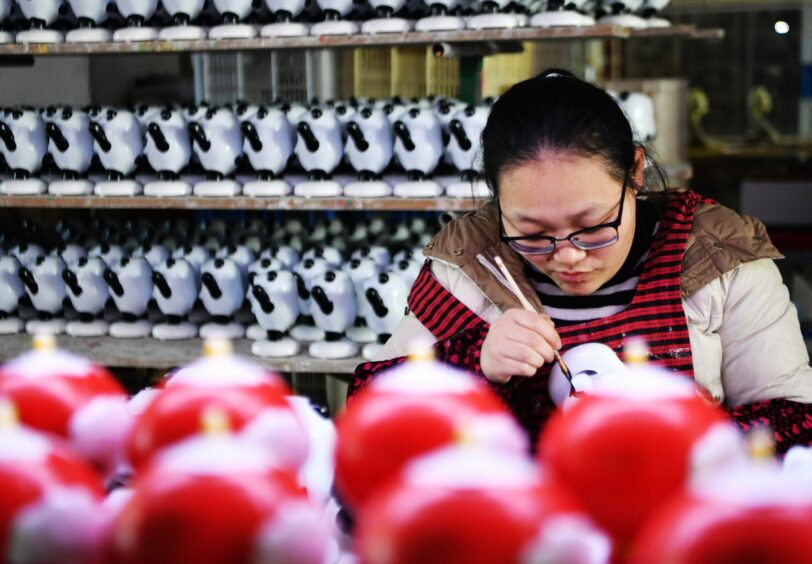
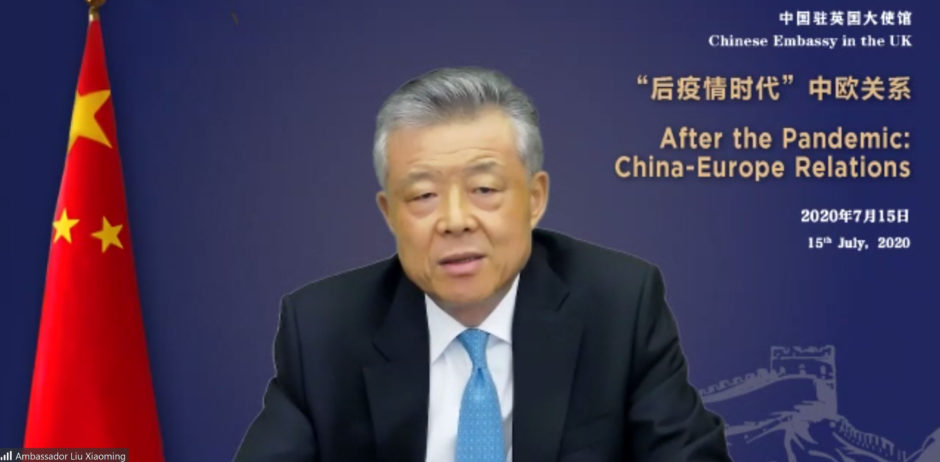
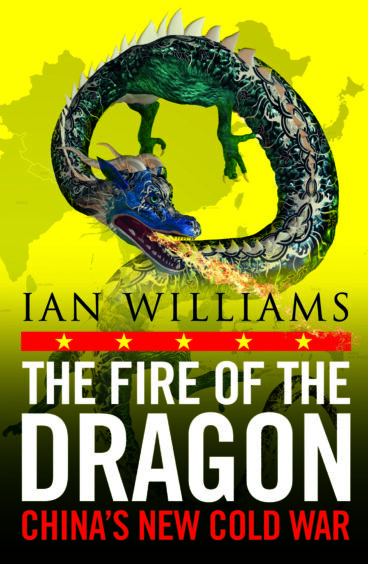
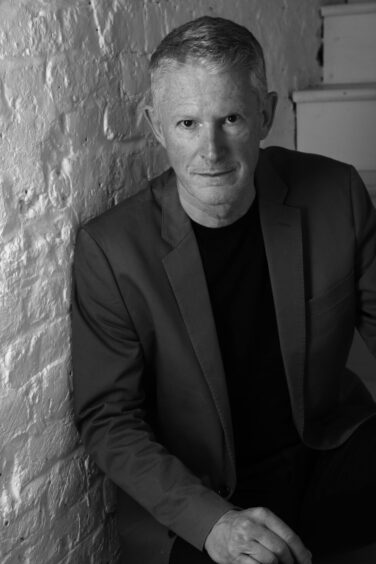
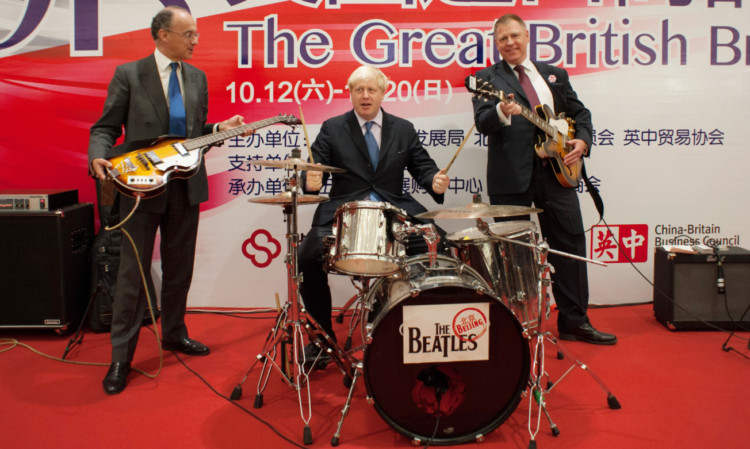
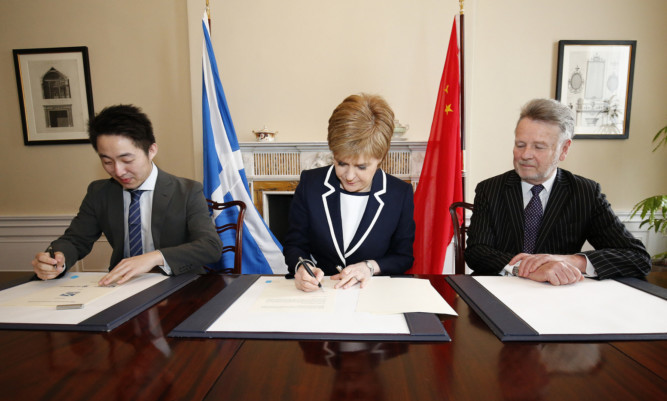










Conversation